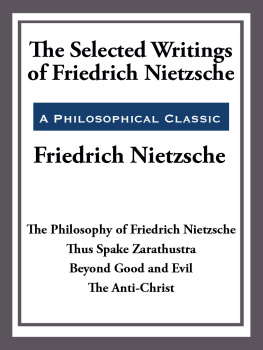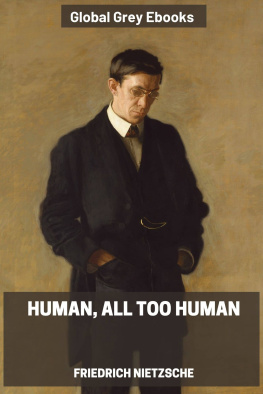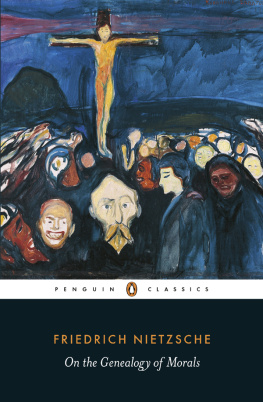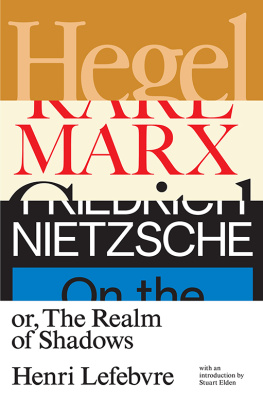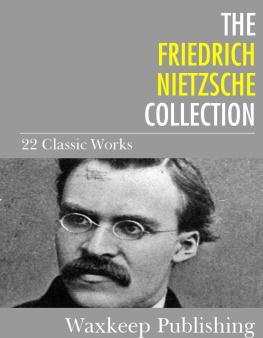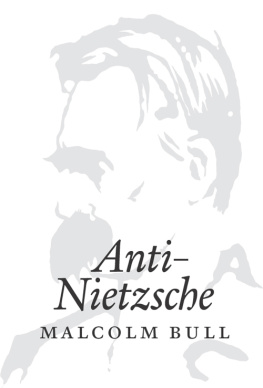First published 2009 by Paradigm Publishers
Published 2016 by Routledge
2 Park Square, Milton Park, Abingdon, Oxon OX14 4RN
711 Third Avenue, New York, NY 10017, USA
Routledge is an imprint of the Taylor & Francis Group, an informa business
Copyright 2009, Taylor & Francis.
All rights reserved. No part of this book may be reprinted or reproduced or utilised in any form or by any electronic, mechanical, or other means, now known or hereafter invented, including photocopying and recording, or in any information storage or retrieval system, without permission in writing from the publishers.
Notice:
Product or corporate names may be trademarks or registered trademarks, and are used only for identification and explanation without intent to infringe.
Library of Congress Cataloging-in-Publication Data
Olssen, Mark.
Toward a global thin community: Nietzsche, Foucault, and the cosmopolitan commitment / Mark Olssen.
p. cm.
ISBN 978-1-59451-446-3 (hardcover: alk. paper)
ISBN 978-1-59451-447-0 (paperback: alk. paper)
1. Liberalism. 2. Communitarianism. 3. Liberty. 4. Nietzsche, Friedrich Wilhelm, 18441900. 5. Foucault, Michel, 19261984. 6. Hayek, Friedrich A. von (Friedrich August), 18991992. I. Title.
JC574.O52 2008
320.51dc22
2008005958
ISBN 13: 978-1-59451-446-3 (hbk)
ISBN 13: 978-1-59451-447-0 (pbk)
Designed and Typeset by Straight Creek Bookmakers.
In this book I re-examine aspects of the liberal-communitarian debate. While critical of both traditions, I argue that a coherent form of communitarianism is the only plausible alternative for citizens today. The work utilizes the theories of Friedrich Nietzsche, Michel Foucault, and others to show how traditional problems with communitarianism can be overcome and how a more pluralistic communitarianism, utilizing a conception of life continuance, can furnish normative framework for twenty-first century politics, at both the national and global levels. Thin communitarianism seeks to overcome traditional liberal objections associated with Hegel and Marx and safeguard liberty and difference through the application of a robust conception of democracy. This work examines many different themes within the debate including liberal autonomy, totalitarianism, and multiculturalism.
This book presents an overview of a possible theory of thin communitarianism which aims to preserve liberal ideals of freedom equally with the dignity of the person and the rule of law, while recognizing the central ontological importance of communities and of the necessity of collective politics to individual aspirations and development. The first major aim is to establish that we are all community beings far more than has been realized or articulated by liberal political theory. Partly as an assertion of liberalisms thesis for an autonomous individuated self, the structural and discursive community contexts in which people are embedded, were obscured. To some extent this was an epistemological issue, where the possibilities for correction only began to appear as evident after the linguistic turn made it possible to locate the social and discursive contexts in which action and development take place. Establishing the precise sense in which the embedded self maintains its ontological existence as part of a community, and the sense in which communitarianism is the only viable theory offered today are central tasks this study undertakes.
In defending communitarianism, a number of difficulties are encountered, especially with relevance to issues such as epistemological and moral relativism, liberty, and agency. Dissatisfied with liberalisms ontological and philosophical foundations, especially in relation to natural rights, the book seeks to ask whether, or how far, a non-foundational approach can go toward constructing an approach to normative political theory which maintains some level of viability. In this quest, I utilize insights from the tradition of Nietzsche, Foucault, Heidegger, Hume, and Deleuze and the question becomes, in a sense, how far can the non-foundational constructivism of these approaches contribute to a normative theory of politics? Although I have not solved all the problems, or developed some important ones very far, I have established, I like to think, that such an approach has mileage, andwith effortmore specific studies can possibly extend the approach. My answer, simply put, depends upon a conception of life, and more specifically, what I call continuance, or the necessary common minimum for life to proceed at an acceptable level. Such an approach justifies both rights and obligations, and also necessitates freedom, as central to the conditions that best promote survival and well-being. It is the immanent normativity of life, in relation to the search for survival and well-being that cross-cuts communities while being integral to them, and which enables us to defend certain moral claims, not as absolutes justified by appeal to nature, or God, but certainly as practically necessary if we want to survive and prosper.
In order to avoid a crippling relativism, that characterizes the moral theorizing of some communitarians, I investigate the extent to which a philosophy of life as present within Nietzsche, Canguilhem, Bataille, Foucault and Deleuze, suggests an immanent normativity that can offset relativism. A philosophy of life contains an immanent normativity to the extent that it contains an immanent demand to respect lifes will to continue. That is not much, but it is something. It can justify why life should be respected; why genocide, arbitrary violence, or murder have been universally outlawed, and why on certain issues concerning life and death, certain shared norms exist in all societies. It can justify, too, positive claims for individuals to develop their capabilities and realize their aspirations under conditions of freedom and integrity for all. It can justify, also, why all societies ought to attend to the on-going development of the capabilities of their citizens. But such an ability to justify lifes claims goes only so far and concerns only issues agreed by all as integrally necessary for lifes continuance. It is like a fence that protects us but only up to our waists. Conflicts over values or practices or policies that are claimed to conform to lifes project for continuance, such as over abortion, for instance, will not easily be resolved by such immanent normative axioms. All sides will claim that their arguments further life continuance. How, then, do we decide between them? All is not lost, however, for even on topics such as abortion, a philosophy of life can justify certain claims, which may not fully resolve the conflict, but which can at least establish parameters that govern the debate and affect the possible outcomes. In addition, a philosophy of life can justify democracy, not simply as a system of replacing leaders, but as a method of allocating fairness within a system. It is on this basis that democracy can reconcile all conflicts, if sometimes on only instrumental grounds, and sometimes on grounds which do not appear as just as that term has traditionally been defined. If life is to continue, then democracy, I will argue, is all that can guarantee it. If we are serious about surviving, then certain thingspolitical, social, economic will need to be done, and sometimes that will force a resolution of conflict on purely pragmatic grounds. Given that in this constructivist world there are no recognized natural rights or foundations, no self-correcting equilibria in markets or nature, and no natural rights to property that could ground traditional claims to privilege, then the general rules for living will need to be negotiated politically and coordinatedincreasingly on a transnational or global basisby each generation anew.


